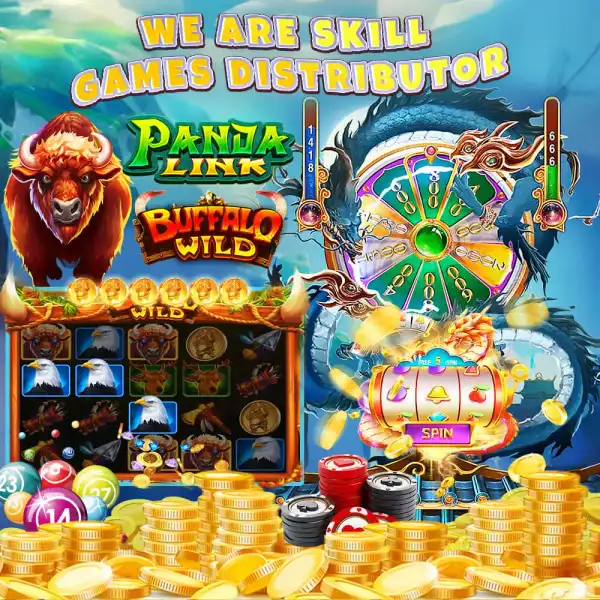
Exploring The World Of Fusion Skill Games
The world of games is constantly evolving, fueled by technological advancements and innovative ideas. One such exciting development in the game industry is the emergence of fusion skill games. Combining elements of skill-based games and chance-based playing, fusion skill games offer a unique and engaging experience for players. In this article, we will delve into the world of fusion skill games, exploring what they are, how they work, and what makes them a thrilling addition to the game landscape.

Defining Fusion Skill Games
Fusion skill games represent a cutting-edge concept that blends traditional skill-based games with elements of chance. These games offer a refreshing departure from conventional game experiences by introducing an interactive and skill-dependent element. Unlike traditional arcade games that rely solely on luck, fusion skill games empower players to utilize their abilities, strategies, and decisions to influence the outcome and potentially increase their chances of winning.
The Role of Skill
At the heart of fusion skill games lies the concept of skill. Players are required to exhibit proficiency in specific activities, often through tasks or challenges, to achieve favorable rewards. These activities can range from solving puzzles and completing levels to quick reflexes, hand-eye coordination, or decision-making skills.
By incorporating skill-based components, fusion skill games introduce a level of challenge and engagement that goes beyond mere chance. This aspect attracts a broader audience, as players can rely on their abilities to achieve success rather than solely relying on luck.
Elements of Chance
While skill is a prominent aspect in fusion skill games, chance still plays a role in determining the result. Unlike purely skill-based games, fusion skill games interweave elements of luck or randomization into the gameplay. This introduces an unpredictable element that adds excitement and anticipation to the game experience.
For example, players may encounter random events or obstacles that require them to adapt their strategies on the fly. The incorporation of chance-based elements ensures that each playthrough is unique and unpredictable, keeping players engaged and immersed in the game.
Popular Genres of Fusion Skill Games
Fusion skill games have permeated various genres, providing a diverse range of in-game experiences. Some of the most popular genres that incorporate fusion skill elements include:
1.Puzzle Games: Fusion skill puzzle games challenge players to solve complex and intricate puzzles using their logic, critical thinking, and problem-solving skills. The element of chance may be introduced through randomized arrangements or dynamic puzzle elements that require adaptability.
2.Action-Adventure Games: Fusion skill action-adventure games blend exciting combat mechanics, exploration, and problem-solving challenges. Players must exhibit skill in combat, platforming, and puzzle-solving to progress through the game. Chance-based elements, such as random enemy encounters or item drops, keep the gameplay dynamic.
3.Racing Games: Fusion skill racing games require players to exhibit precise control, quick reflexes, and strategic decision-making on the race track. Skillful driving and navigating various terrains are essential for victory, while chance-based elements, such as randomized power-ups or track hazards, add unpredictability.
4.Card Games: Fusion skill card games combine the strategy and decision-making aspects of traditional card games with randomized card draws or effects. Players must employ their knowledge of tactics, probabilities, and card synergies to outwit opponents, while chance-based elements influence the availability and order of cards.
Advantages of Fusion Skill Games:
Fusion skill games offer several advantages that have contributed to their rising popularity within the game community. Some notable advantages include:
1.Engaging Gameplay: By combining skill-based challenges and chance-based elements, fusion skill games provide a captivating and immersive in-game experience that keeps players invested and entertained.
2.Strategic Decision-making: Fusion skill games encourage strategic thinking and decision-making, as players must evaluate risks, weigh potential rewards, and adapt their approaches based on the current situation. This aspect adds depth and complexity to the gameplay.
3.Skill Development: Fusion skill games provide an opportunity for players to develop and improve their skills in areas such as problem-solving, critical thinking, hand-eye coordination, and quick decision-making. Regular engagement with these games can lead to the acquisition of valuable skills that can extend beyond the game realm.
4.Inclusivity: Incorporating skill-based components makes fusion skill games appealing to a broader audience, as players are not solely reliant on luck. This inclusiveness fosters a diverse game community by catering to players with various skill levels, backgrounds, and preferences.
5.Enhanced Replayability: The fusion of skill and chance ensures that each playthrough is unique and offers fresh challenges and experiences. The unpredictability factor increases replayability, as players strive to improve their skills or explore different strategies to achieve better results.
Conclusion
Fusion skill games represent an exciting evolution in the game industry, creating a marriage between skill-based challenges and the thrill of chance-based elements. By combining proficiency and strategy with unpredictable results, fusion skill games offer a captivating and immersive in-game experience for players of all skill levels. The incorporation of skill-based components encourages strategic thinking, skill development, and inclusive gameplay, resulting in a dynamic and addictive game experience.
Whether you’re navigating intricate puzzles, embarking on epic quests, or engaging in high-speed races, fusion skill games will continue to shape the future of game, providing thrilling experiences that entertain, challenge, and captivate players around the world.




